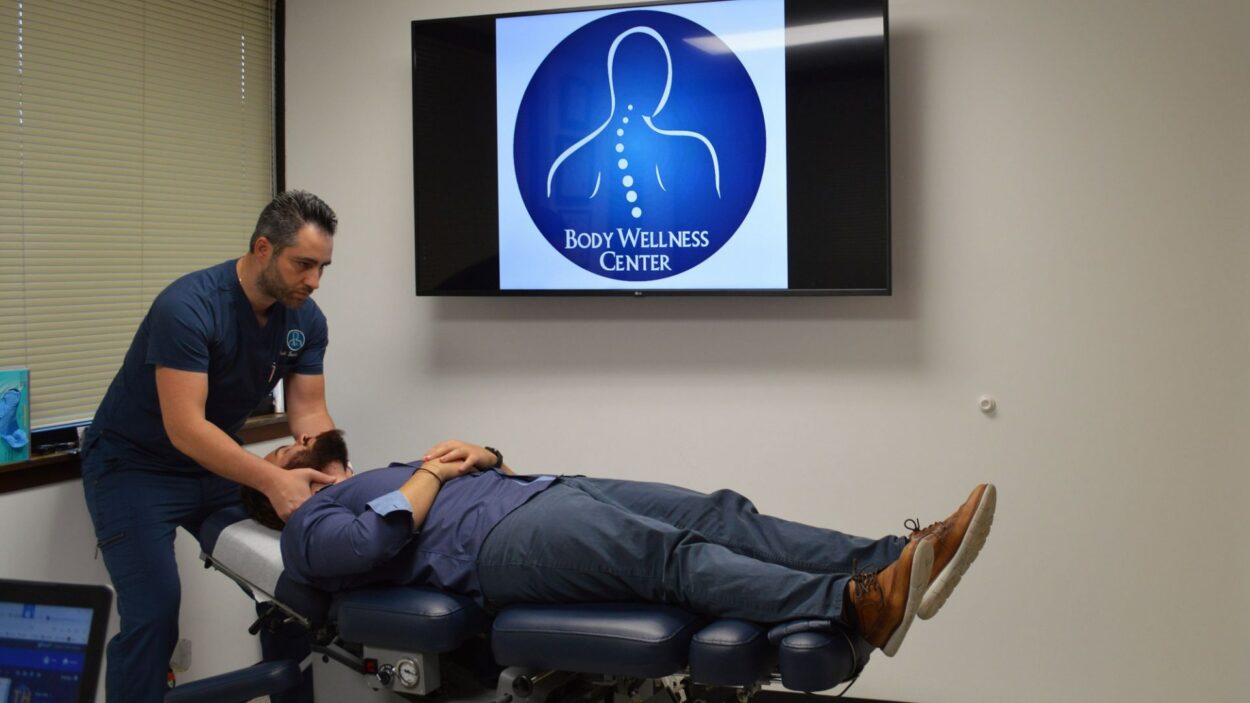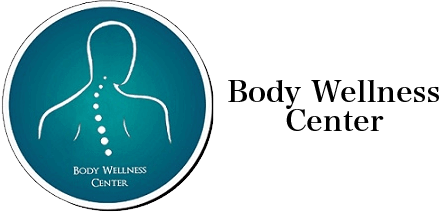
Key Takeaways
What are the best rehabilitation options for multiple sclerosis patients?
- Rehabilitation Focus: Physical therapy, occupational therapy, and aquatic therapy improve strength, mobility, and independence for MS patients.
- Lifestyle Changes: Mindfulness, energy pacing, and nutrient-rich diets support symptom management and overall wellness.
- Speech Therapy: Helps address speech clarity, swallowing issues, and cognitive functions impacted by MS.
- Collaborative Care: Multidisciplinary teams ensure comprehensive support, including neurologists, dietitians, and counselors.
- Personalized Plans: Tailored care approaches, like those offered by Body Wellness Center, enhance mobility and confidence in MS patients.
Rehabilitation options for MS include physical therapy to build mobility, occupational therapy to enhance independence, aquatic therapy for low-impact movement, and speech therapy for communication and cognitive support. Lifestyle adjustments, like mindfulness and energy pacing, also play a vital role in symptom management.
Living with Multiple Sclerosis (MS) presents unique challenges, but with the right rehabilitation strategies, individuals can better manage their symptoms, maintain independence, and enhance their overall quality of life. Because MS affects people differently, personalized and holistic care is essential to long-term wellness. This guide explores effective management approaches, highlighting the roles of physical therapy, occupational therapy, and complementary treatments in providing relief and support.
Understanding Multiple Sclerosis
MS is a chronic autoimmune condition that targets the central nervous system (CNS). It occurs when the immune system mistakenly attacks the myelin sheath, a protective layer around nerve fibers. This damage leads to inflammation and scarring, which disrupts communication between the brain and body. Symptoms vary but often include:
- Muscle weakness and fatigue
- Challenges with balance and coordination
- Vision impairments
- Numbness or tingling sensations in the limbs
- Cognitive changes, such as memory or concentration difficulties
The unpredictable nature of MS requires a well-rounded care plan that addresses not only physical health but also emotional and social well-being.
Rehabilitation Options for Managing MS
Effective management of MS relies on a combination of therapies, lifestyle changes, and wellness practices. Below are some key approaches to rehabilitation.
1. Physical Therapy: Building Strength and Mobility
Physical therapy plays a central role in addressing MS-related challenges. Tailored exercise programs can improve strength, coordination, and balance. Therapists design individualized routines that may include:
- Strengthening exercises to build muscle resilience.
- Stretching techniques to reduce spasticity and encourage relaxation.
- Balance training to help prevent falls and enhance mobility.
- Postural adjustments to alleviate unnecessary strain on the body.
For individuals with advanced mobility difficulties, therapists can recommend assistive devices such as braces, walkers, or canes, providing greater safety and confidence during daily activities.
2. Occupational Therapy: Enhancing Independence
Occupational therapy focuses on empowering individuals to navigate daily life with greater ease. This type of therapy addresses specific functional challenges, helping people maintain independence and manage tasks more effectively. Key interventions include:
- Energy conservation strategies to minimize fatigue.
- Modifying home environments for improved safety and accessibility, such as installing grab bars or using adaptive tools.
- Developing fine motor skills for tasks like writing, cooking, or using technology.
These targeted strategies help reduce frustration and improve satisfaction with daily routines, making life more manageable and fulfilling.
3. Aquatic Therapy: Low-Impact Movement
Water-based therapy offers significant benefits for those living with MS. The buoyancy of water reduces strain on joints and muscles, making movement more comfortable and accessible. Common aquatic therapy sessions may include:
- Resistance exercises to build strength and endurance.
- Gentle stretching to enhance flexibility and range of motion.
- Relaxation techniques that promote calmness and reduce muscle tension.
Beyond its physical benefits, aquatic therapy often provides a mental boost, helping patients feel more relaxed and capable.
4. Speech Therapy: Supporting Communication and Cognitive Skills
MS can sometimes impact speech, swallowing, and cognitive functions. Speech therapy addresses these areas to help individuals maintain essential communication and thinking skills. Specific techniques include:
- Exercises to improve speech clarity and articulation.
- Strategies to support safe swallowing and reduce risks of choking.
- Cognitive skill development to strengthen memory, attention, and problem-solving.
These interventions allow individuals to communicate effectively and engage fully in their personal and professional lives.
5. Lifestyle Adjustments for Better Symptom Management
Beyond formal therapy, making intentional lifestyle changes can significantly enhance symptom management. Incorporating wellness practices into daily life fosters better overall health. Some beneficial strategies include:
- Mindfulness practices like yoga or meditation to reduce stress and improve focus.
- Regular exercise tailored to individual energy levels, which helps combat fatigue and build strength.
- Nutrient-rich diets, emphasizing anti-inflammatory foods to support overall wellness.
- Energy pacing, which involves planning rest breaks throughout the day to prevent overexertion.
These adjustments create a well-rounded foundation for managing physical and emotional health more effectively.
A Collaborative Approach to MS Care
Rehabilitation for MS often involves a multidisciplinary team working together to address all aspects of the condition. Key professionals include:
- Neurologists: Monitors disease progression and manages medications.
- Physical and Occupational Therapists: Supports movement and functional independence.
- Dietitians: Provides nutritional guidance tailored to the needs of MS patients.
- Counselors or Support Groups: Addresses emotional challenges and fosters community connections.
This team-based approach ensures that every aspect of the patient’s well-being is considered, creating a comprehensive support network.
Starting Your Rehabilitation Journey
Living with MS can feel overwhelming, but with the right support and resources, you can regain control and improve your quality of life. At Body Wellness Center in Northern New Jersey, we offer personalized care plans tailored to meet the unique needs of individuals with MS. Our services include physical therapy, aquatic therapy, and holistic wellness strategies designed to enhance mobility, confidence, and independence.
Take the first step toward managing your symptoms and improving your overall health. Contact us today to schedule a consultation and explore how our comprehensive rehabilitation services can support your journey.
FAQ
What rehabilitation options are available for multiple sclerosis patients?
Options include physical therapy, occupational therapy, aquatic therapy, speech therapy, and lifestyle changes like mindfulness and proper nutrition.
How does physical therapy help MS patients?
Physical therapy improves strength, mobility, balance, and posture while reducing spasticity. It may also involve assistive device recommendations for safety.
What is the role of occupational therapy in MS care?
Occupational therapy focuses on daily task management, energy conservation, and creating safe, accessible environments to promote independence.
Why is aquatic therapy beneficial for MS patients?
Aquatic therapy offers low-impact movement, reducing joint strain while improving strength, flexibility, and relaxation in a supportive water environment.
How does speech therapy support MS patients?
Speech therapy helps improve speech clarity, swallowing safety, and cognitive skills such as memory, attention, and problem-solving.
What lifestyle adjustments can help manage MS symptoms?
Mindfulness, energy pacing, regular exercise, and anti-inflammatory diets can enhance symptom management and improve overall well-being.
Why is a multidisciplinary approach important for MS care?
A collaborative team of neurologists, therapists, dietitians, and counselors ensures holistic care, addressing all aspects of a patient’s health.
How can Body Wellness Center support MS patients?
Body Wellness Center offers personalized rehabilitation plans, including physical therapy, aquatic therapy, and wellness strategies tailored to individual needs.
TESTIMONIALS
Dr. Sarkis is an excellent and caring doctor. He explains the care he provides and how it would benefit me for faster healing. Highly recommended!
Dr. Sarkis is one of the best chiropractors I have ever had. I have been going a couple of times a week and I feel so much better.
Awesome chiropractic care and awesome chiropractor! After my adjustment, Dr. Sarkis gave me this incredible pillow and now I sleep like an angel! I highly recommend Body Wellness Center.
Excellent quality of care and professionalism. I came in with back pain and Dr. Sarkis was able to diagnose me correctly with an effective treatment plan for my road to recovery. It’s been two weeks now and I am feeling better.
CALL US
HOURS OF OPERATION
Clifton Location
M / W / F: 10:00 AM – 7:00 PM
Saturday: 9:00 AM – 1:00 PM
(By Appointment Only on Sat)
Kearny Location
Tuesday: 10:00 AM – 3:00 PM
Thursday 1:00 PM – 6:00 PM
Paterson Location
Tuesday: 1:00 PM – 7:00 PM
Thursday: 1:00 PM – 6:00 PM
Friday: 1:30 PM – 7:00 PM
OUR SERVICES
Chiropractic care is a holistic approach to wellness that focuses on the body’s natural ability to heal itself. By addressing the root causes of pain and discomfort, rather than just the symptoms, chiropractic treatments aim to restore balance and enhance the body’s overall functionality. This form of care primarily involves adjustments and manipulations of the spine and other parts of the body to improve alignment, relieve pressure on the nervous system, and promote optimal health.
Prenatal chiropractic care supports you and your baby through nine months of pregnancy (and beyond). It’s a gentle and natural approach to easing the common discomforts of pregnancy, such as back pain, nausea, and headaches, by ensuring your spine and pelvis are well-aligned and balanced. This not only enhances your comfort but also creates an optimal environment for your baby to grow and develop.
Physical therapy helps you reclaim strength, flexibility, and mobility, allowing you to embrace life’s activities with zest and ease. It’s a personalized approach that addresses the unique needs of your body, using a blend of therapeutic exercises, hands-on treatments, and cutting-edge techniques. Whether you’re recovering from an injury, managing a chronic condition, or striving to enhance your overall physical performance, our physical therapy program is designed to empower you.
Sports taping is a dynamic support system designed to elevate your performance and safeguard your journey toward peak physical condition. This technique uses specialized tape applied strategically to the skin, providing support to muscles and joints without restricting movement. It’s perfect for athletes and active individuals seeking to enhance their training, recover from injuries more effectively, and prevent future strains.
At Body Wellness, we understand the unique demands of commercial drivers and the importance of maintaining peak physical health to keep those wheels turning smoothly. Our comprehensive physicals are designed to ensure you meet all health standards required for your CDL/DOT certification, focusing on your overall well-being, including vision, hearing, blood pressure, and other key health indicators.



